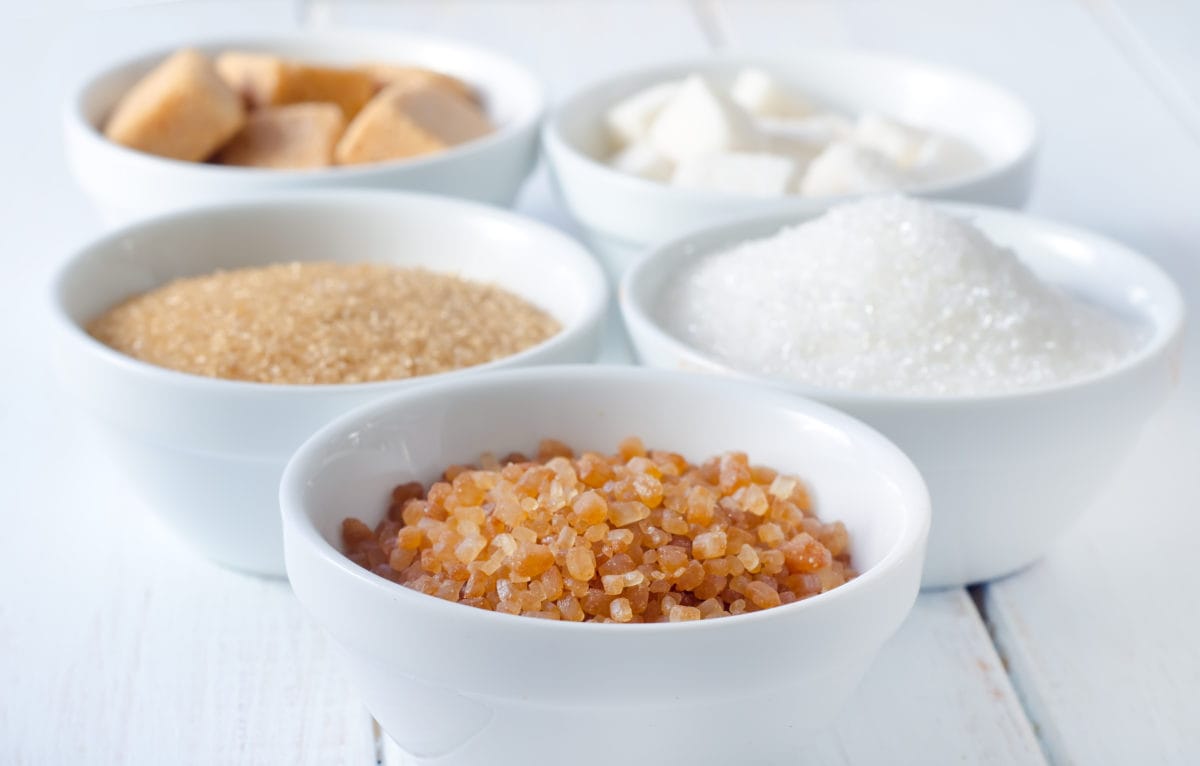When people start looking for alternatives to sugar, it’s usually because they have to, not because they want to. For instance, it’s very common for our bodies to develop health problems that require such dietary changes.
On the other hand, maybe you’re just being proactive about improving your health. Swapping out sugar is a great way to reduce excess calories from your diet and maintain a healthy weight.
Either way, here’s the good news. There are a lot of natural sweeteners that taste just as good if not better than sugar. Most of them are healthier, too.
You’ll find descriptions/comparisons of 10 such sugar-free sweeteners below. Read on to learn more about your options.
1. Honey
Honey is one of the most common sugar substitutes and can be a lot healthier than sugar. Raw honey in particular has a lot of antioxidants and other nutrients that sugar doesn’t.
However, it contains about the same amount of calories as table sugar. It also breaks down the same way as sugar in your body. Thus, this isn’t an acceptable sugar substitute for those who are trying to lose weight or manage their blood sugar levels.
2. Yacon Syrup
Yacon syrup comes from a South American plant known as Smallanthus sonchifolius. It contains only one-third of the calories of regular sugar.
This is because 40-50% of the syrup is not digestible. Thus, about half of the yacon syrup you consume passes right through your system.
Even better, yacon syrup contains nutrients that feed the beneficial bacteria in your gut. And a healthy gut is linked to numerous benefits to your overall health.
3. Maple Syrup
Like honey, pure maple syrup contains loads of nutrients, including iron, zinc, manganese, calcium, and potassium. Plus, it has even more antioxidants than honey does. And it doesn’t raise your blood sugar levels quite as much as cane sugar.
Again, though, these benefits only apply to true, 100% maple syrup. And this is significantly more expensive than table sugar.
Furthermore, most of the syrup options in the pancake aisle of the grocery store are not real maple syrup. Be sure to pay attention to the ingredient label when you buy it or else you’ll end up with maple-flavored sugar water.
4. Stevia
Stevia is a type of natural sweetener derived from the leaves of the stevia plant. It remarkably contains 0 calories and is hundreds of times sweeter than cane sugar. This makes it one of the best sugar alternatives there is for weight/blood sugar management.
Furthermore, it’s great for dessert recipes, as long as you use a measuring guide when replacing sugar. And it includes health-boosting nutrients like phytochemicals.
5. Monkfruit Sweetener
Certain brands like Lakanto sweetener use a natural sweetener derived from the monk fruit. Like Stevia, monk fruit sweetener is 0 calories and hundreds of times sweeter than table sugar.
This sweetener is also very high in nutrients and antioxidants. However, some brands process the sweetener more than other brands, removing some of these nutrients.
Also, monk fruit sweetener is sometimes mixed with other sweeteners before it’s packaged. So, when you try this sweetener, pay attention to the label so you know what you’re really getting.
6. Sucralose
Sucralose, most commonly known as Splenda, is an artificial sweetener. That means, unlike the sweeteners listed above, it’s created in a lab rather than derived from a plant. As such, sucralose contains no nutrients unless they are supplementally added.
Still, it’s approved by the FDA as a safe, 0-calorie sugar substitute. Thus, it can help you reduce calories without any side effects. And, it’s 600 times sweeter than cane sugar, so a little goes a long way.
7. Coconut Sugar
Coconut sugar has no fewer calories than cane sugar. But it’s raw, unprocessed, and, therefore, loaded with vitamins and nutrients. This also means that it won’t lead to rapid blood sugar fluctuations.
You should know, though, that it doesn’t dissolve as easily as table sugar. So, you’ll have to do a little more mixing when you use coconut sugar for baking.
8. Acesulfame Potassium
Acesulfame potassium, also known as Ace-K, is a 0-calorie artificial sweetener. It’s not as sweet as sucralose, but still sweeter than sugar.
Plus, those who notice an unfavorable aftertaste from sucralose or stevia may have better luck with acesulfame potassium. Use it in place of sugar for baking or any other use.
9. Xylitol
Xylitol is a natural sweetener derived from corn and sometimes birch wood. It is not a complete sugar but a sugar alcohol.
Xylitol contains 40% fewer calories than cane sugar. And, more importantly, it contains no fructose, which is what causes most of cane sugar’s negative health effects. As a result, consuming xylitol does not raise your blood sugar levels.
It is, however, very poisonous to dogs. So, dog owners might not want to keep this sweetener in the house, just in case.
10. Erythritol
Erythritol is another sugar alcohol and it contains only 6% as many calories as sugar. The reason for this is that it is almost entirely undigestible.
Thus, it passes through your digestive system with almost no effects whatsoever. That said, though, the effects of consuming erythritol are still being researched.
Swap Your Sweetener With One of These Alternatives to Sugar
If you need to switch to a different sweetener, keep this guide handy. Try the alternatives to sugar listed above until you find the one you like best.
Now, check out some of our other excellent health and nutrition tips. Browse our Health archives to learn about hemp oil, plant-based smoothies, and more.
